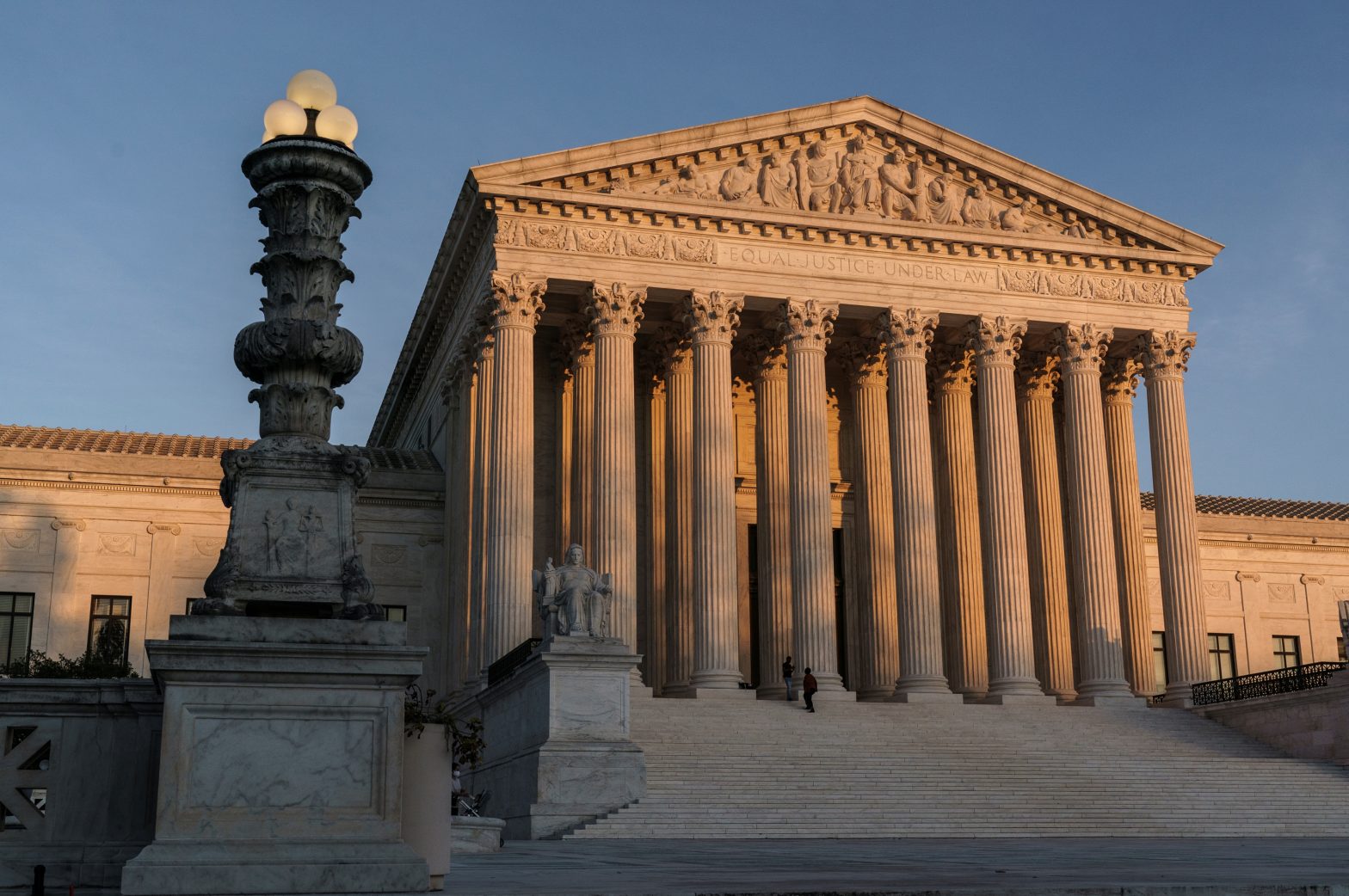High Court Rejects Independent State Legislature Theory

WASHINGTON — The Supreme Court on Tuesday rejected a controversial legal theory that would have given state legislatures nearly unchecked power to set the rules for federal elections.
As previously reported by The Well News, the case Moore v. Harper centered on the validity of the so-called “independent state legislature” theory.
Adherents of the theory hold that the U.S. Constitution gave state legislatures absolute power over congressional elections, regardless of any constraints imposed by their own state constitutions.
Critics of the theory dismissed it as a misinterpretation of the Constitution’s elections clause, which states: “The times, places and manner of holding elections for senators and representatives, shall be prescribed in each state by the legislature thereof.”
The question the justices were asked to decide was whether state election laws and political district maps passed and/or adopted by state legislatures should continue to be subject to judicial review in state courts.
Had the court decided the independent state legislature theory was valid, it would have had a sweeping impact on, among other things, efforts to advance election freedoms and curb electoral gerrymandering nationwide.
But in a 6-3 decision, the court rejected the state legislature theory, holding that the North Carolina Supreme Court did not violate the Constitution when it set aside a congressional map adopted by the state’s Legislature.
Writing for the majority, Chief Justice John Roberts concluded, “The elections clause does not insulate state legislatures from the ordinary exercise of state judicial review.”
At the same time, however, he also cautioned that state courts also “do not have free rein” when it comes to cases involving federal elections.
“The questions presented in this area are complex and context specific,” he wrote. “We hold only that state courts may not transgress the ordinary bounds of judicial review such that they arrogate to themselves the power vested in state legislatures to regulate federal elections.”
Roberts was joined in his opinion by Justices Sonia Sotomayor, Elena Kagan, Brett Kavanaugh, Amy Coney Barrett and Ketanji Brown Jackson.
Justice Clarence Thomas dissented, in an opinion joined by Justices Samuel Alito and Neil Gorsuch.
Thomas offered that he would not have reached a consideration of the “independent state legislature theory” question at all.
Thomas said he would have dismissed the case as moot because the ruling being challenged in the case has since been overruled and the judgment resolved all of the claims in the matter in the petitioners’ favor.
What concerned Thomas was that, in his view, the majority left unanswered the question of just what exactly “ordinary judicial review” means.
“What methods of constitutional interpretation do they allow? Do those methods vary from state to state? And what about stare decisis — are federal courts to review state courts’ treatment of their own precedents for some sort of abuse of discretion?” he asked.
“The majority’s framework would seem to require answers to all of these questions and more. In the end, I fear that this framework will have the effect of investing potentially large swaths of state constitutional law with the character of a federal question not amenable to meaningful or principled adjudication by federal courts.
“In most cases, it seems likely that the ‘the bounds of ordinary judicial review’ will be a forgiving standard in practice, and this federalization of state constitutions will serve mainly to swell federal-court dockets with state constitutional questions to be quickly resolved with generic statements of deference to the state courts,” Thomas continued.
“On the other hand, there are bound to be exceptions,” he said. “They will arise haphazardly, in the midst of quickly evolving, politically charged controversies, and the winners of federal elections may be decided by a federal court’s expedited judgment that a state court exceeded ‘the bounds of ordinary judicial review’ in construing the state constitution.
“I would hesitate long before committing the federal judiciary to this uncertain path. And I certainly would not do so in an advisory opinion, in a moot case, where ‘the only function remaining to the court is that of announcing the fact and dismissing the cause,’” Thomas said.
Despite Thomas’ concerns, reaction to the majority’s ruling and its position of the independent state theory was swift.
“By rejecting the independent state legislature theory, the Supreme Court preserved the vital role state courts play in protecting free elections and fair maps for the American people,” said former Attorney General Eric Holder Jr. in a written statement. “This is a victory for our system of checks and balances, the cornerstone of American democracy.”
Holder, who today heads the National Redistricting Foundation, which fights gerrymandering through the courts, went on to say the appeal “and the truly fringe, truly ideological theory it espouses should never have been brought before our nation’s highest tribunal in the first place.”
That it was, he said, “demonstrates the lengths to which too many in the Republican Party are willing to go in order to bend — even break — our democracy in order to hold onto illegitimate power.”
Senate Majority Leader Chuck Schumer, D-N.Y., also reacted to the ruling on Tuesday, saying that as a result of the majority’s opinion, “those who support democracy, fair elections and the rule of law can stand a bit taller.”
“Today’s ruling reaffirms the long-standing precedent that respects our constitutional system of checks and balances,” he continued. “There is still much work to do to protect American democracy. As John Lewis said, ‘Democracy is not a state. It is an act.’”
You can reach us at [email protected] and follow us on Facebook and Twitter
























